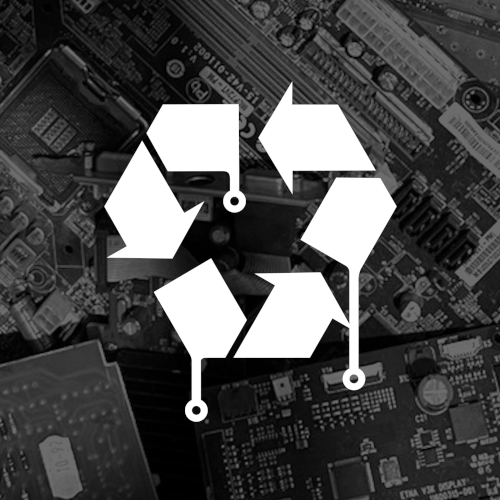reducing e-waste through reverse engineering
Unbinare is an e-waste reverse engineering lab. Our objective is to reduce the increase of e-waste by finding ways to reuse discarded electronic devices. A strong characteristic of this increase is the shortening lifespan of electronic devices. Factors such as planned obsolescence, the inability to repair and abandoned software support for devices that have reached end-of-life all contribute to electronics prematurely ending up in a waste stream.
According to the Global E-Waste Monitor 2020, each person on the planet produced on average 7.3 kg of e-waste in 2019, amounting to 53.6 million tonnes of discarded devices. Even with e-waste management systems in place in areas that legislatively enforce them, only 17.4% of these devices have been properly collected and recycled. This means that 82.6% of generated e-waste had an uncertain destination.
Around 8% appeared to be discarded in landfills or incinerated. An estimated 7-20% of global e-waste has been exported illegally under the guise of being for reuse or labeled as scrap metal. Currently, the majority of undocumented domestic and commercial e-waste is mixed up with other waste streams, ending up in the global south where they are traded, burned or dumped in landfills .
We believe we can help to change this trend and increase the lifespan of discarded devices by changing their purpose; an electronic device consists of a lot of different components that all work in conjunction to provide its functionality. Each of these components can be repurposed into something else before the device ends up in a waste stream.
In order to meet this objective, we create hardware and software tools that assist in the analysis and reverse engineering of discarded devices and their components to help reimagine what they could become next. We believe in developing and using devices that are cheap, easy to obtain and easy to produce in order to allow anybody to join the effort. More importantly, we operate from an anarchist context and consider our research to be a form of direct action to counter state and corporate control of the environment.



"the validity of usefulness, adequacy of popular standards can be tested only by research that violates them."
Paul Feyerabend